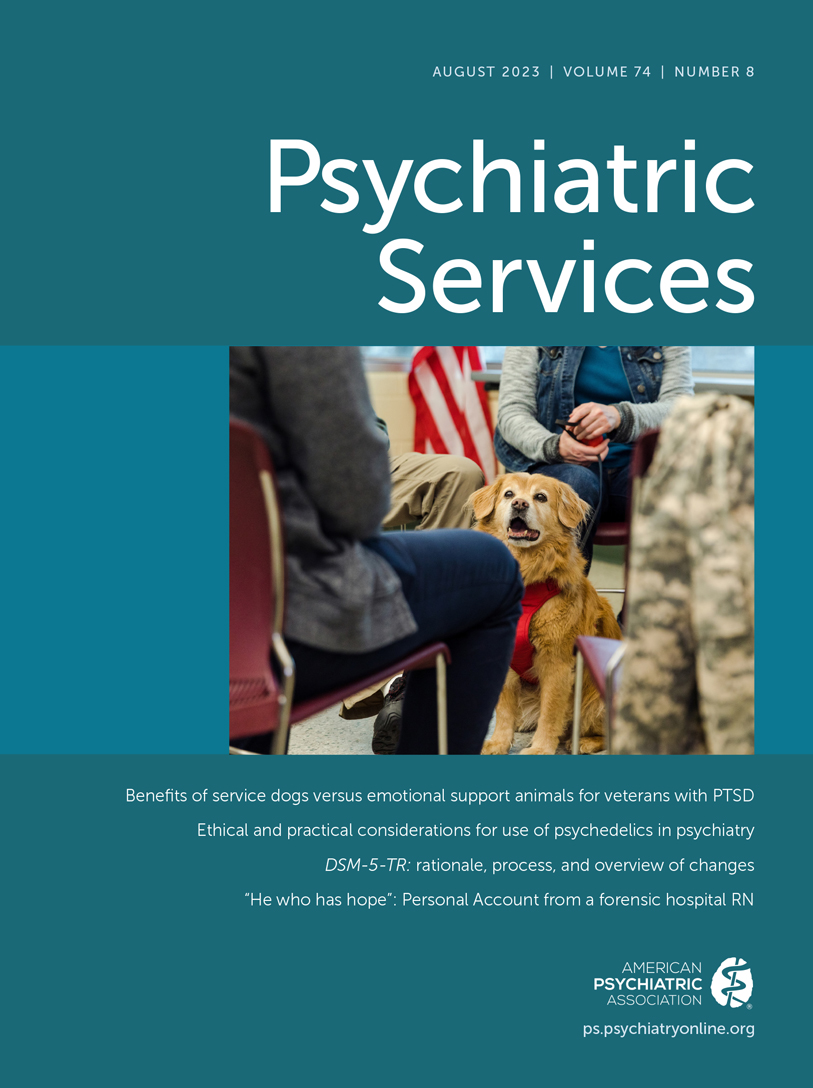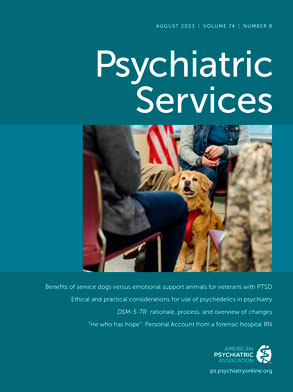My footsteps echoed down the stark white corridor as I entered the psychiatric unit. The nine units of the maximum-security forensic hospital, each housing some of the state’s most ill and, in some instances, most violent individuals, were innocuously named after the idyllic isles of the Florida Keys, their purpose hidden behind soothing titles such as Sugarloaf, Big Pine, and Long Key. The hospital, where I helped people cope with their often misunderstood illnesses, had an otherworldly, hostile feel that mirrored the landscape of the dark and surreal Florida Everglades I passed through on my nightly commute. Earlier, while I had mentally readied myself for the graveyard shift during my walk through the parking lot, I had heard the cicadas’ droning hum and the rattle of snake tails in the bushes. The crimson moon had hung low over the sky, contrasting with the facility’s bright, towering lights jutting up from the dark and untamed marsh.
Neither Healing nor Justice
As a registered nurse, I was to care for patients sent to the hospital because the courts had deemed them unfit to stand trial or not guilty due to mental illness. My patients’ criminal offenses ranged from misdemeanors, such as drug possession, to first-degree felonies, including murder; nonetheless, I owed them all a professional duty to attend to their medical and psychiatric needs. I worked at the hospital for 6 months, caring for people whose circumstances left them in an extreme state, both mentally (often psychotic) and institutionally (in a remote setting outside the bounds of society). This forensic hospital served as a combination of treatment facility and prison, yet it offered neither healing nor justice.
The Forensic Hospital
The forensic hospital I worked in is one of many throughout Florida serving as an unhappy medium between institutionalization and imprisonment. The hospital’s culture, cold and suspicious, left employees jaded and the residents to languish, deprived of meaningful care. The patients suffered from mental illnesses that were often exacerbated by adverse events in their lives. They needed intensive general medical and psychiatric care that the forensic hospital did not provide. Instead, forensic hospitals such as this one perpetuate the revolving door between institutionalization and crime, prioritizing restoration of competency (so that the patients can face their charges in court) over interventions that might lead to meaningful and lasting improvement. The institution was (and remains) a for-profit business, cutting costs where possible and often at the patients’ expense. Units were frequently short-staffed, with existing staff underpaid. In addition, critical psychosocial services were regularly underfunded or cut.
Still, I was determined to make a difference in my patients’ lives. The moments I saw my actions had positive effects were unforgettable. One patient, for instance, was an educated gentleman with Parkinson’s disease who used a wheelchair. He felt isolated by the impersonal and demeaning nature of the hospital, which dictated the type and timing of his daily activities, from bathing to restroom use. Staff often ignored his pleas for help. On one occasion, he asked me to help him put on his shoes. After I did, he wept and confided in me how much dignity this simple gesture provided him. That simple act made a tremendous difference, and the interaction showed me the value of providing patients with the compassionate care they need.
“There but for the Grace of God Go I”
My experience at the forensic hospital showed me how incapable the U.S. criminal justice system is of addressing the needs of people with mental illness. Thus, ever since my stint at the hospital, I have worked to change the perceptions, policies, and practices that resulted in the subpar care I witnessed. I serve on the board of directors for the National Alliance on Mental Illness (NAMI). My work with NAMI has allowed me to help guide national mental health policy and advocacy efforts and to witness the profound difference it makes when legal and mental health care systems work earnestly on behalf of people with mental illness. I have engaged in advocacy and public policy reform with NAMI to fix ineffective and counterproductive policies and find hospitalization alternatives such as jail diversion programs, which provide comprehensive care that can reduce recidivism and costs.
My experience working at the forensic hospital also instilled in me a more profound humility and appreciation for the conditions in my life that put me on a path different from that of my patients. As I would ready myself for my wearying graveyard shift, I often paused and thought, “There but for the grace of God go I.”
Nearly a decade prior to working at the hospital, I had graduated from high school a National Hispanic Scholar with an early admissions placement in medical school when I experienced the onset of psychosis. In a few short years, I transformed from a promising young scholar into a gravely ill individual. My mind became a confine of its own, a prison of disorganized thoughts and false beliefs. By my senior year, I was eating out of trash cans, smoking cigarettes found on the ground, and rambling incoherently. Finally, after family members had spent months desperately seeking help and bringing me to over a dozen appointments with mental health professionals, I received a diagnosis of adult-onset schizophrenia.
I remember the concerned look on the doctor’s face as he broke the news. I asked, “What does a diagnosis of schizophrenia mean? Will I be able to go back to work or school?” He said, “Carlos, it’s up to you. If you take your medications, it’s still possible for you to live the life you want to live.”
Caring for patients at the forensic hospital deepened my gratitude for supportive friends, family, and colleagues who facilitated my recovery. My gratitude also extends to the kind doctor who, at the nadir of my suffering and confusion, chose not to prejudge or discriminate against me but instead offered hope and evidence-based treatment.
A Career Grounded in Service
In the years following my diagnosis, I established a successful career grounded in service to individuals and families living with mental illness. I graduated in 2017 with a master’s degree in nursing from the University of Miami, and I am dual board certified as a family nurse practitioner and a psychiatric mental health nurse practitioner. I recently expanded my leadership role at NAMI when I was elected cochair of the steering committee for the Accelerating Medicines Partnership Schizophrenia (AMP SCZ) program. This public-private partnership between NIH, the U.S. Food and Drug Administration, the European Medicines Agency, and multiple public and private organizations aims to promote early interventions for individuals at clinical high risk for psychosis (
https://www.ampscz.org).
As cochair of the steering committee, I represent both industry and nonprofit partners and work to ensure the project remains focused on our “true north”—improving the lives of families and individuals living with mental illness. This exciting partnership represents a moon-shot mission that allows stakeholders to direct greater vision and creativity to helping patients who are at risk of developing schizophrenia. By working alongside leaders with lived experience of psychosis, we ensure that the science is conducted compassionately and with respect and dignity for those amid one of the most challenging periods of their lives (
1).
I have not been content to watch from the sidelines as unfair and ineffective policies deprive individuals of the care they need. My work with NAMI and AMP SCZ has reinforced my desire to use law, science, and policy to improve the well-being of some of society’s most vulnerable groups and ensure that both public and private systems follow practices that are grounded in compassion and an understanding of people’s needs.
I plan to build on my experience as a clinician in my career, combining that expertise with the legal and policy tools needed to effectively advocate for individuals and families living with mental illness. I am currently pursuing a juris doctor at the University of Michigan and a master’s degree in public administration at the Harvard Kennedy School as a Zuckerman Fellow at Harvard’s Center for Public Leadership. I intend to leverage my interdisciplinary education and lived experience to catalyze much needed change in how legal and mental health care systems treat people, finally giving individuals like my patients at the forensic hospital the dignity and care they need.
“He Who Has Health, Has Hope”
Every morning after my night shift at the hospital, before my drive back through the Everglades, I would pause to watch the sun, bright and round like a blood orange, rising above the wilderness of the swamp, and I would think about how I could make a difference in the lives of the patients under my care. Now I know that there is a more equitable and humane way to address the needs of people with mental illness—provide people with access to treatment, early intervention, and community support that promotes resiliency and recovery.
In my career, I will serve as a voice for those who need to be heard and work to ensure that people and families living with mental illness have access to the care they need to thrive. Too many people are left without adequate mental health care and resources or the means of advocating to improve their situation. My professional goal is to advocate for reform so individuals like my patients at the forensic hospital receive the justice and care they need to truly heal. In the words of philosopher Thomas Carlyle, “He who has health, has hope; and he who has hope, has everything.”

